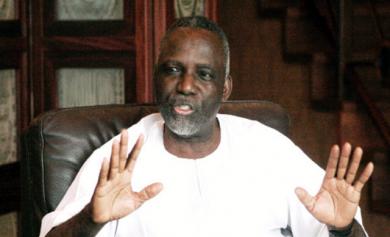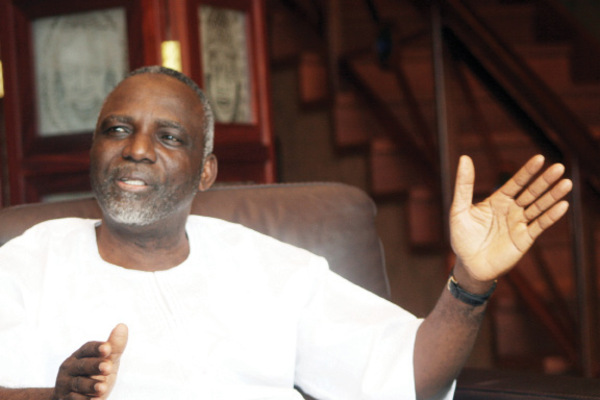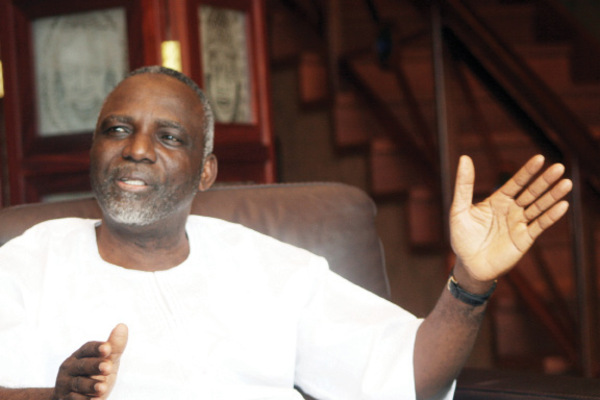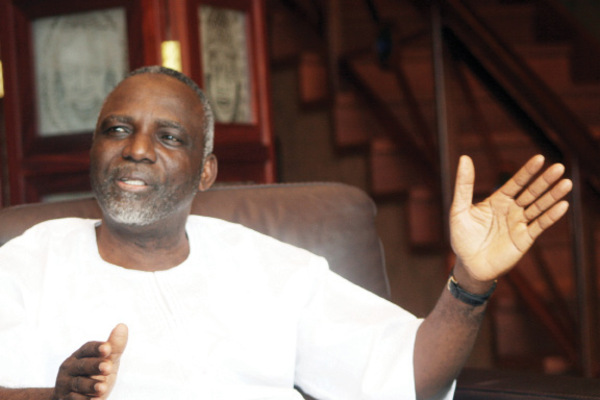Nnaji’s free bulbs
The recent plan by the Minister of Power, Prof. Barth Nnaji, to distribute energy-efficient-led bulbs as a way of conserving available energy and improving power supply in the country is trite and laughable.
Nnaji had hinted about the planned distribution of millions of energy-efficient-led bulbs free to all consumers in the country as part of energy efficiency programme to reduce consumption through reduced use of conventional bulbs. Shedding more light on the programme, the minister also explained that a 15-watts-led bulb is equivalent to a 60 watts regular bulb while an 18-watts-led bulb is equivalent to a regular 100 watts one.
Curiously, the minister was silent on the number of bulbs he plans to distribute and the means of getting this across to consumers. He also did not tell Nigerians the quantum of energy that is expected to be conserved through the use of the energy-efficient bulbs.
This is coming on the heels of earlier information that for the country to meet its electricity requirement of about 135,000 megawatts to effectively power the economy, it must exploit numerous power sources like fuel, gas, hydro, coal, wind and solar energy.
At present, Nigeria generates about 3,600 megawatts of electricity out of the 5,700 megawatts available capacity. The shortfall has been blamed on non-availability of gas, lack of proper maintenance, water management issues and transmission constraints, among other factors.
Nnaji should, indeed, face the issue of power generation squarely and work seriously towards increasing the quantity of power generated in order to meet the required target. It was revealed at the recent one-day presidential workshop on power in Abuja that for the nation to achieve its electricity target, it needs about 15 times of what is presently generated.
No doubt, the energy-efficient bulbs would not do the magic. There is the need for a pragmatic and workable roadmap for the power sector to improve significantly. All the agencies involved in ensuring that there is steady and sustainable power in the country should work in concert to achieve the desired result.
It is regrettable that the power sector has remained problematic despite the huge sums of money pumped into it since 1999. From the administration of former president, Olusegun Obasanjo to the late president, Umaru Musa Yar’Adua, the story has remained the same. For instance, about $13.27 billion was expended on the revamping of the sector during the Obasanjo administration, while $6 billion was spent on the sector during Yar’Adua’s regime.
Nigerians were elated when upon assuming office about a year ago President Goodluck Jonathan promised that the power sector problem would be his number one priority. He, like most Nigerians, believes that once the power sector problem is fixed, all other things will fall in line. But one year into his administration, the power sector has not witnessed any significant change.
Therefore, the Minister of Power should be working towards harnessing all the available energy sources in the country and solve the nation’s endemic power problem. The government should tap solar, wind, hydro, coal, gas, fuel including bio-fuel sources in resolving the nation’s power problem instead of distribution of energy-saving bulbs. Most of the available power sources in the country are cheap and available in large quantities. What is needed is the political will to exploit and put them to use.
Let government remove all obstacles, legal or otherwise, that have impeded the liberalization of the power sector in order to bring in more credible players that will assist in boosting the quantity of power produced in the country. We have the manpower and resources to meet our electricity target. What is required is a focused and determined effort to achieve result. That is what Nnaji should do for the beleaguered sector and not distribution of bulbs.
Related Posts
One Comment
Latest News
-
FCMB Bank (UK) Limited Launches Personal and Business Banking Proposition to Deepen Inclusiveness
FCMB Bank (UK) Limited, an independently incorporated subsidiary of First...
- Posted August 1, 2018
- 0
-
The Worrisome Trend of Sensational Social Media “Journalism” and the Impact On Legitimate Business Concerns: Recent Travails of FCMB, GTBank and First Bank
On June 25, 2018 I woke up to yet another...
- Posted June 26, 2018
- 0
-
FCMB attains ISO Certification for Quality Management
Leading financial services provider, First City Monument Bank (FCMB), has...
- Posted May 16, 2018
- 0
-
Over 1,000 firms bid for 2017 railway projects
Over 1000 companies expressed interest in 17 categories of projects...
- Posted October 20, 2017
- 2
-
NAICOM moves to enforce compulsory insurance of public buildings
To drive the enforcement of the compulsory insurance of public...
- Posted October 20, 2017
- 11
-
Reps ask NPA to reverse termination of agreement with Intels
The House of Representatives yesterday waded into the ongoing controversy...
- Posted October 19, 2017
- 1
-
SEC suspends Oando shares from stock market
The Securities and Exchange Commission has ordered the Nigerian Stock...
- Posted October 19, 2017
- 1
-
FCMB Bank (UK) Limited Launches Personal and Business Banking Proposition to Deepen Inclusiveness
FCMB Bank (UK) Limited, an independently incorporated subsidiary of...
- August 1, 2018
- 0
-
The Worrisome Trend of Sensational Social Media “Journalism” and the Impact On Legitimate Business Concerns: Recent Travails of FCMB, GTBank and First Bank
On June 25, 2018 I woke up to yet...
- June 26, 2018
- 0
-
Azman Air commences flight operation in Sokoto
Azman Air Thursday commenced flight operation to Sokoto state....
- February 21, 2015
- 424
-
NRC increases Lagos goods trains, eyes fuel haulage
The Nigerian Railway Corporation says it has increased its...
- June 23, 2016
- 100
 Nigeria News
Nigeria News
- I don’t know why Wike doesn’t respect me – Amaechi
- Zamfara factional assembly questions governor over alleged reckless spending
- Jigawa police smash crime rings, recover stolen items across state
- Amaechi reveals how Tinubu can be removed from power in 2027
- UEFA announce moment of silence for Diogo Jota, André Silva









realest1s
May 17, 2012 at 10:48 pm
No one said he is FOCUSED on the distribution of bulbs.
Btw, do not underestimate energy efficient bulbs.
It means we can light up 4 times more homes without an increase in power generation capacity.